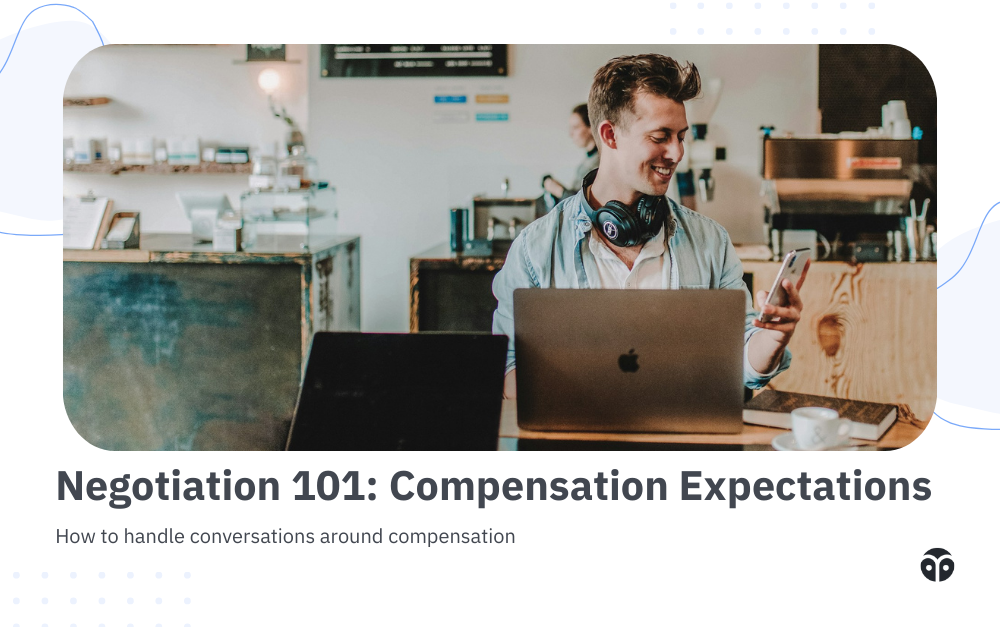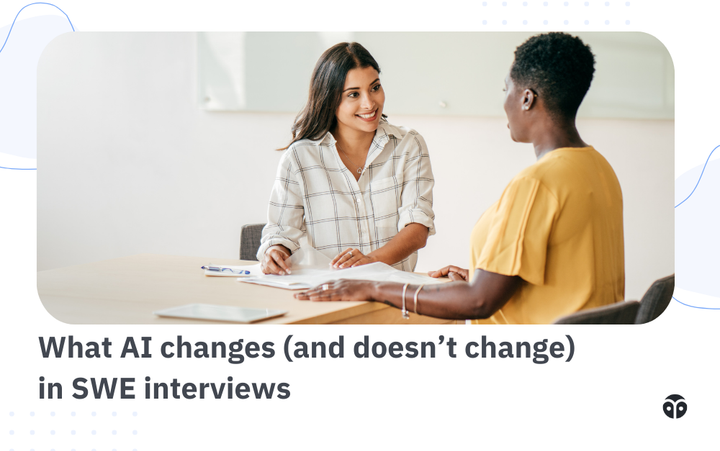Compensation Negotiation Best Practices: Compensation Expectations
Here's how to handle when a recruiter asks for your compensation expectations.

Great news! You’ve passed the onsite, and a company is very likely to extend an offer.
Before they extend an offer, a recruiter may ask to hop on a call with you. Be prepared to field some questions about your compensation expectations on this next call. This is a common practice to ensure that a company is aligned with you and can deliver a compelling offer.
Here are some tips for setting yourself up for successful negotiations.
Keep in mind: Your goal and the recruiter’s goal may be different
When talking to recruiters, it's important to remember that you may have different objectives. By understanding these different goals, you'll be better prepared to handle the conversation and position yourself to get what you want while helping recruiters achieve their objectives.
Recruiter’s goal:
- Find out if you’re excited about the opportunity
- See how they measure up compared to other companies
- Find out if you have other offers they need to compete with
- Sell you on the opportunity
- Listen for clues about what you need to be able to accept the offer
- Understand your timeline
Your goal:
- Set a high anchor or mention that you prefer to receive an offer
- Demonstrate unrestrained enthusiasm for the people/product/company
- Set up the timeline so that the company is aware of what you need
Three pitfalls to avoid on this call
By avoiding these pitfalls, you'll position yourself more favorably in the negotiation process and ensure you have the leverage to secure the best possible offer. To make sure your conversation with the recruiter is as successful as possible, steer clear of these common mistakes:
Avoid deferring compensation discussions to another time
You’re at the end of the process! You’ve demonstrated your technical acumen, and they have assessed your skill set and cultural fit. If they’re asking you about your compensation expectations, then you have leverage.
To set yourself up well for negotiations, we recommend candidates keep responses vague. Say something like, “I expect a competitive offer aligned with my level and experience.” The recruiter is asking because they want to make sure the role is in the right range. You want to avoid accidentally undervaluing yourself.
Avoid stating a compensation target that falls neatly into the range you’ve researched online
If you do choose to share a range, make sure you’re properly prepared to do so. Resources like Levels.fyi are great, but not the end-all. It’s up to the company to level you. If they’re asking you for your compensation expectations, then it only serves you to set a high anchor. If you instead don’t want to share a target, that’s a better option than sharing one simply because it mirrors what they will provide.
Avoid using any overly-committed phrasing like “Looking forward to working together”
Keep some distance. Insert the phrasing “possibility of,” by saying, “Looking forward to the possibility of working together.” Otherwise, this can backfire later when negotiating; the recruiter may feel you have already signaled your acceptance.
Example Script for Success
Here's a sample script you can use to navigate the conversation with a recruiter successfully:
Option A: Set a high compensation anchor
Recruiter: "We would like to move forward with an offer. We're still in the process of putting together the details of your offer. I wanted to check in with you and align around your timeline and expectations. Do you have any number you're targeting?"
You: "I'm targeting a total compensation of [$250k] right now. I have some upcoming onsites in the next week or so, which may give me some more relevant market data I can share with you."
Curveball Response:
Recruiter: "Oh, how did you come up with that number?"
You: "Market data research, and I have peers who work in the industry at similar levels who have been kind enough to share their compensation."
Option B: Don’t share an expectation
You: "I trust that [Company] pays competitively, so I'm open to hearing an offer. I have other offers coming in as well, so as I get more signals about how the market values my skill set, I can keep you updated."
How to reassure the company you’re interested if the number is out of range
Recruiter: "That's quite a bit out of our range. Would you still be interested in considering [Company]?"
You: "Absolutely, [Company] has been incredibly aligned in terms of role and career growth. Compensation is only one of several factors I'm considering in my next career move."
Get holistic job hunt support with Formation
The Formation Fellowship gives mid-level and senior engineering job seekers everything they need to land their dream roles—including personalized skill brush-ups, unlimited mock interviews with experienced software engineers and hiring managers from top-tier tech companies, and offer reviews and negotiation support.
Apply here for unconditional support from a team of engineering mentors, technical recruiters, career coaches, and more.



